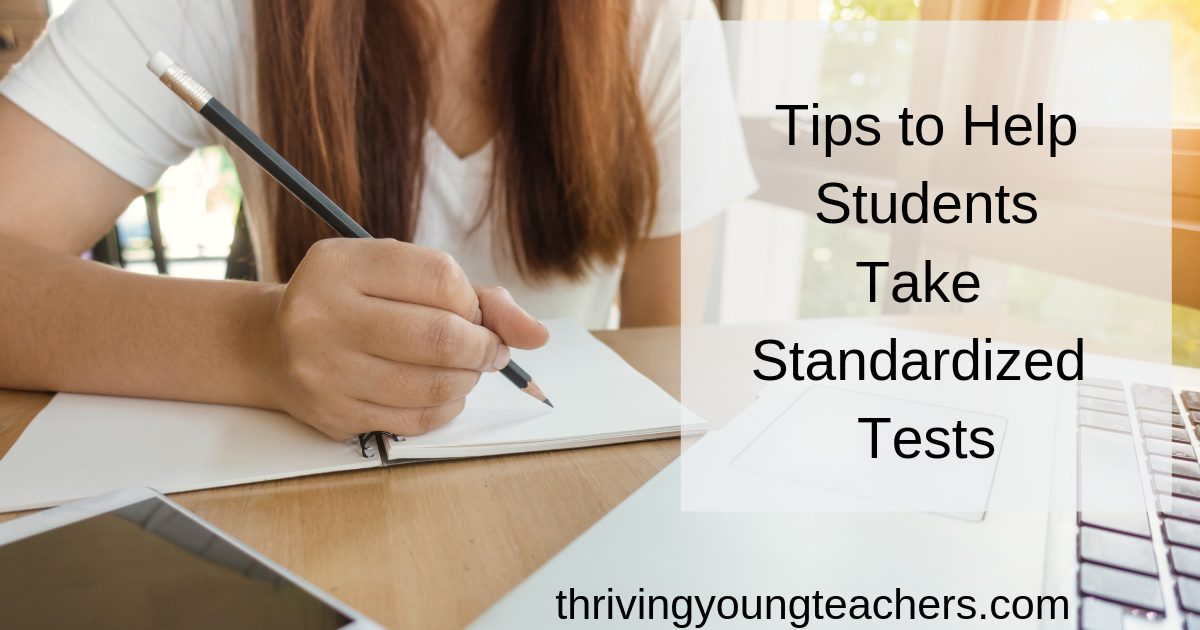 Most school districts in the United States require some form of standardized test. Because standardized tests can have high stakes, both students and teachers are sometimes fearful of them. Fortunately, there are many ways teachers can help students to succeed on standardized tests without resorting to teaching to the test.
Most school districts in the United States require some form of standardized test. Because standardized tests can have high stakes, both students and teachers are sometimes fearful of them. Fortunately, there are many ways teachers can help students to succeed on standardized tests without resorting to teaching to the test.
Care for student’s physical needs.
Abraham Maslow taught us that we must take care of basic survival needs before we can attend to higher level needs such as learning or test taking. Emphasize the importance of getting a good night’s sleep and a good breakfast. Make sure students have a chance to use the bathroom before a test. Give them an opportunity to drink water and eat something. Many districts offer students fruit before tests.
Encourage students to get up and move before sitting for long stretches of time during a test. You can engage them in some physical exercises such as doing jumping jacks or let them dance to popular music for a couple of minutes. Movement helps to get blood flowing and increases oxygen, both of which help the brain to do its best work.
Decrease fear and stress around testing.
Introduce the test ahead of time. Make sure students understand the purpose of the tests and how the test results will be used. Discuss how their test scores may benefit their school or how the scores might them personally. Remind them that the tests do not affect their grades.
Encourage students to take the tests seriously, but not to stress about them. Comments such as, “Do your best, but then don’t worry. All you can do is the best you can do” can be reassuring. Let them know that you believe in them and that you know they will try their best. Ask students to think about a time when they have been successful in school, which will increase their understanding of themselves as someone who can succeed.
Create the best possible test taking environment.
Turn off electronics, including your phone, to decrease noise. Arrange desks or tables so students have space but are comfortable. If possible, test in a room with natural light. Make sure students have tools they need including pencils, erasers, calculators and scratch paper for paper tests or completely charged computers for computer -based tests.
Prepare students for the format of the test ahead of time.
Students who are unsure or uncomfortable with the format of a test will not do as well as those who have experienced the test or similar tests previously. If the test has a practice version, administer it, keeping testing conditions as similar to the actual test as possible. Make sure students understand the types of items and how to answer the different types of questions. If the test includes open ended responses or written essays, practice the format ahead of time so students understand the expectations.
If you teach young students who will be using a scantron answer sheet, practice copying answers to the scantron sheet. Teach them to be carefully to write the answer in the correct spot on the answer sheet.
Be sure that students also understand the “rules” of a test. For example, with some tests, you are always better off guessing the answer if you don’t know. In other tests, you will lose points for guessing incorrectly so it is better not to guess.
Each portion of the tests is timed, so make sure students understand how many minutes they have to complete the test. They should also know whether or not the testing procedures allow the facilitator to announce time warnings.
Share your best test taking tips and strategies.
Think about what you know and have experienced with standardized tests personally. What are some of the strategies that you used successfully? If you didn’t know the answer to a question, maybe you learned to cross off any wrong answers to increase the odds of a correct answer. Perhaps you practiced answering a fill-in-the-blank question by reading each of the choices in the blank to see which one sounded best. When you share your experiences, students will see that they are not alone and understand that there are strategies they can use to increase their success. Give them opportunities to share their own test taking strategies as well.
Teach the vocabulary of testing.
Students must understand the words used in testing directions. They may be asked to define, compare and contrast, or infer. They might need to describe or summarize. Often, they will be asked to choose the “best answer” or the scenario that is “most likely.” These are often instructional words that are used regularly in the classroom, but don’t assume that all students understand the subtle difference between words such as describe or explain.
Give students tools to calm themselves if they feel stressed.
Deep breathing is a commonly used strategy for decreasing anxiety. Practice some deep breathing techniques. Students can also stretch their fingers if they are feeling writing cramps, or roll their shoulders if they have been sitting in one position too long. Quietly pumping their legs can increase alertness by using large muscles to increase circulation and increase oxygen to the brain. These are simple activities, but can reduce the stress and fatigue caused by sitting and focusing for long periods of time.
Teachers have many opportunities to helps students do their best on standardized tests. Though you probably wish you could spend time teaching content and less time preparing for tests, your actions and instruction do make a difference and can help students to be more successful on standardized tests.
Wishing you test success,






